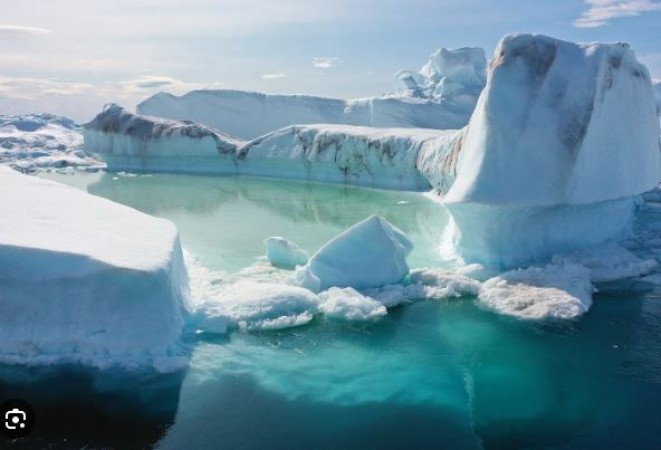
In the realm of climate change, the hypothetical scenario of all Earth's ice melting is a nightmarish vision that has captured the attention of scientists and the public alike. While this is a highly unlikely event in the near future, it's crucial to explore its potential consequences to understand the magnitude of its impact on our planet.
Before delving into the hypothetical, it's essential to grasp the enormity of Earth's ice reserves. Our planet boasts two primary types of ice: polar ice caps and glaciers.
Polar ice caps encompass the vast ice sheets that cover Antarctica and Greenland. Together, they hold approximately 99% of the Earth's freshwater ice.
Glaciers, found in various mountainous regions across the globe, account for the remaining 1% of the world's freshwater ice.
Imagine a world where global temperatures have risen dramatically, causing all of Earth's ice to melt. This catastrophic event would result in several dire consequences.
One of the most immediate and impactful outcomes would be the dramatic rise in sea levels. As polar ice caps and glaciers melt, they would pour an astonishing volume of water into the oceans. Coastal cities and low-lying regions would face inundation, displacing millions of people.
The melting of all ice would disrupt the global climate system. The ice currently reflects sunlight and helps regulate temperatures. Without it, the Earth's surface would absorb more heat, leading to even more warming.
Many species depend on polar regions and mountain ecosystems. The loss of these icy habitats would threaten countless plant and animal species, potentially leading to mass extinctions.
The melting ice would disrupt ocean currents, which play a vital role in regulating climate and distributing heat. This could result in more extreme weather patterns and oceanic disturbances.
Changes in climate and sea levels would severely affect agriculture, potentially leading to food shortages and increased prices.
As coastal areas become uninhabitable, millions of people would be forced to migrate to safer regions, creating social and political challenges.
The economic consequences would be staggering. Damage to infrastructure, loss of valuable coastal real estate, and the disruption of global trade would lead to a severe economic downturn.
Resource scarcity, mass migration, and increased competition for habitable land could trigger conflicts on an unprecedented scale.
In the face of such a catastrophe, humanity would need to rapidly adapt. Innovative technologies and strategies for dealing with rising sea levels and extreme weather events would become paramount. While the scenario of all Earth's ice melting is a terrifying vision, it serves as a stark reminder of the critical importance of addressing climate change. While such an event is unlikely in the foreseeable future, the gradual melting of polar ice caps and glaciers is a reality that demands our attention and immediate action. In summary, the consequences of all Earth's ice melting would be catastrophic, affecting everything from sea levels to global climate, biodiversity, and human civilization. It underscores the urgency of mitigating climate change and preserving the icy realms of our planet.
Foods to Treat Fatty Liver Disease
7 Heart-Healthy Foods: Enjoy in Moderation for Optimal Health